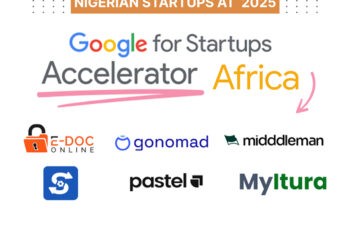
Is Nigeria’s Economy on the Rise? Key Takeaways from FNCCI Breakfast Meeting
In a session organized by the Franco-Nigerian Chamber of Commerce and Industry (FNCCI), business executives converged for a January breakfast meeting. The event which was sponsored by Stren & Blan Partners provided a platform for key industry players to discuss and dissect critical issues shaping Nigeria’s economic landscape in 2024.


The breakfast meeting commenced with an insightful address by the Consul-General of France in Nigeria, Laurent FAVIER who lauded the FNCCI for organizing this crucial gathering. He emphasized the commitment of their partners, including Business France, Alliance de Française and others, to supporting the enduring business relationship between France and Nigeria.
After the opening address, we heard from Stren & Blan, the event sponsors, through their founding Partner, Amala UMEIKE. He expressed optimism about the economic trajectory in 2024. He also acknowledged the challenges faced but affirmed his belief that resilience and strategic planning would lead to better outcomes. The announcement of a similar event, “The Horizon,” slated for London on March 5th, also underscored their commitment to fostering global business dialogues.
Keynote Insights from Taiwo Oyedele

The centerpiece of the event was the keynote address by Taiwo Oyedele, Chairman of the Presidential Committee on Fiscal Policy and Tax Reforms. His presentation provided a panoramic overview of the Nigerian economy, outlining the challenges and opportunities for the year.
Oyedele set the stage by acknowledging the global economic turmoil triggered by the COVID-19 pandemic, underlining the delicate balance between pandemic-induced economic downturns and the subsequent need for palliatives. He emphasized the inherent challenge of maintaining economic stability while addressing inflation caused by increased spending.
A highlight of Oyedele’s address was the critical role exchange rate management plays in the country’s economic fortunes. He stressed the need for prompt and deliberate action to address inefficiencies, distortion, and imperfections in the market, particularly in speculative and illicit demands. Amidst these challenges, he acknowledged positive indicators, including a trade surplus, declining budget deficit, and increased government revenue.
Since the removal of subsidy, the indicators have been moving in the right direction but the results have not been what we want. This is due to market inefficiency, distortion and imperfections which reflects mostly in speculative and illicit demand.
Taiwo Oyedele
Tackling Challenges Head-On
Expressing reservations about textbook solutions, Oyedele called for decisive measures, expressing his dissent on increasing interest rates to combat inflation in Nigeria.
The context is different, because Nigeria is not a credit economy, deposits rates are ridiculously low and cannot attract investment. Managing exchange rate, improving the security environment and being more productive are some of the things that can bring down the inflation.
Taiwo Oyedele (Chairman, Presidential Fiscal Policy and Tax Reforms Committee)
Mr. Oyedele also shared his perspectives on tackling challenges, advocating for a holistic approach. He identified the need to focus on multi-dimensional aspects of poverty, beyond just income, emphasizing access to education, health, sanitation, living standards, and security. Urging prioritization in spending, he proposed the development of a comprehensive spending and borrowing policy.
The solutions to our problems are simple but we need to be decisive.
Taiwo Oyedele
Panel Session:

The subsequent panel session moderated by Moses Umoru, DG FNCCI, provided diverse perspectives on crucial matters affecting businesses.
Uche Okoli, Audit & Assurance Partner at Mazars in Nigeria, highlighted key areas for organizational focus in 2024, particularly in tax compliance, staying informed on transfer pricing regulations, and being prepared for tax audits and investigations.
Ozioma Agu, Partner, Energy, Finance, and Infrastructure at Stren and Blan Partners, shared her outlook on the oil and gas sector. She anticipates increased downstream activity due to the commencement of refineries, and also emphasized the need for improved infrastructure to harness Nigeria’s abundant gas resources.
We have all the resources in Nigeria, what we need are investors and people who have the manpower and capacity to come and untap the resources that we have
Ozioma Agu (Partner, Energy, Finance, and Infrastructure at Stren and Blan Partners)
Prince Ojeabulu, CEO of Rensource Energy, provided his unbiased assessment of the prospects for clean energy in Nigeria. While acknowledging the ripe market, he underscored the need for favorable investment conditions and dealing with practical challenges with respect to foreign exchange issues.
Investors are scared to bring in their FX to Nigeria because they are afraid they will not be able to get it out when they need it
Prince Ojeabulu (CEO, Rensource Energy)
Christian Mulamula, Senior Country Manager at the Nigeria International Finance Corporation, highlighted areas beyond energy for potential funding. Emphasizing poverty elimination and job creation, he discussed investments in industrialization, finance for SMEs, and support for disruptive technology and fintech sectors.
Policy Consistency and Implementation: The Way Forward
The panel discussions delved into challenges stemming from policy changes and inconsistent enactment of laws. Taiwo Oyedele highlighted the risk of asking Nigerians to pay taxes in dollars without a corresponding injection of FX into the market. He called for accountability, urging citizens to hold the executive and legislative branches responsible for effective policy implementation.

Former President of the Nigeria Bar Association, Dr. Olisa Agbakoba, advocated for a legal foundation to support reforms, suggesting a legal component for Mr. Taiwo’s committee.
Concluding the session, Amala Umeike talked more the FX crisis, stating that what we need are foreign direct investments not more borrowing by the government.
We will never get it right if we do not bring in FDIs
Amala Umeike (Founding Partner, Stren & Blan Partners)
He also stressed the critical role of policy implementation in attracting investments, citing the business facilitation act as an example of a good policy that wasn’t implemented. He encouraged proactive efforts to push existing laws towards implementation. In his closing remarks, Mr. Amala emphasized,
At the end of the day, what investors want is policy implementation
Amala Umeike (Founding Partner, Stren & Blan Partners)
Conclusion: Navigating Future Horizons
The FNCCI breakfast meeting served as a crucible for insightful dialogues, crystallizing the collective wisdom of industry leaders. As Nigeria charts its economic course in 2024, the challenges and opportunities discussed underscore the need for strategic, decisive, and collaborative actions.
In the face of global economic complexities, the insights shared at this event can serve as a compass for navigating uncharted territories. The call for consistent policies, legal foundations, and focused investments in key sectors echoes a collective aspiration for a resilient and thriving Nigerian economy







Comments (0)